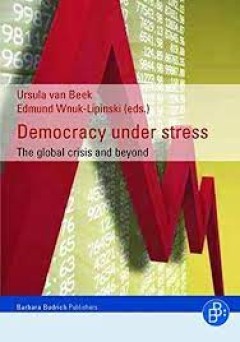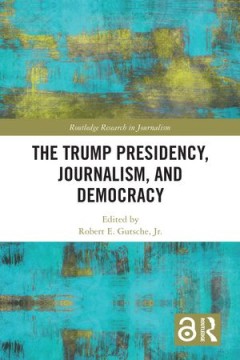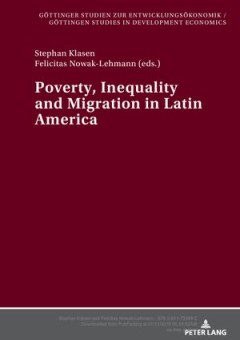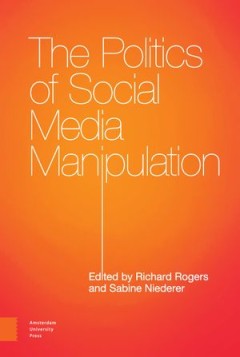Filter by

The Australian horn of plenty: how Britain's Australian colonies gained democ…
Democracy -- What were the 1850s constitutions and electoral laws? -- The ideas that formed these new Australian colonial democracies -- The Colonial leaders that fought for and opposed democracy -- Obstructive Legislative Councils (upper houses) -- New South Wales -- The 18th century colony -- Victoria -- The colony of the goldfields and Eureka stockade -- South Australia -- The democracy colo…
- Edition
- -
- ISBN/ISSN
- 9781003490739
- Collation
- -
- Series Title
- -
- Call Number
- -
Iconographies of Occupation Visual Cultures in Wang Jingwei’s China, 1939�…
Iconographies of Occupation is the first book to address how the “collaborationist” Reorganized National Government (RNG) in Japanese-occupied China sought to visualize its leader, Wang Jingwei (1883–1944); the Chinese people; and China itself. It explores the ways in which this administration sought to present itself to the people over which it ruled at different points between 1939, whe…
- Edition
- -
- ISBN/ISSN
- 9780824887711
- Collation
- -
- Series Title
- -
- Call Number
- -

Democracy under stress The global crisis and beyond
This book focuses on the global financial crisis of 2008-2009 and its implications for democracy. Why and how did the crisis come about? Are there any instructive lessons to be drawn from comparisons with the Great Depression of the 1930s? What are the democratic response mechanisms to cope with serious crises? Do they work? Is China a new trend setter? Do values matter? Are global democratic r…
- Edition
- -
- ISBN/ISSN
- 9783866495807
- Collation
- -
- Series Title
- -
- Call Number
- -

@' is for Activism Dissent, Resistance and Rebellion in a Digital Culture
How have politics and activism been transformed by digital media, including digital television, online social networking and mobile computing? Since the emergence of new technologies, new modes of cooperation, deliberation and representation have risen to the fore, @ is for Activism maps out how political relationships have been reconfigured and new have emerged through the use of new technolog…
- Edition
- -
- ISBN/ISSN
- 9781783710515
- Collation
- -
- Series Title
- -
- Call Number
- -

The Trump Presidency, Journalism, and Democracy
This book examines the disruptive nature of Trump news – both the news his administration makes and the coverage of it – related to dominant paradigms and ideologies of U.S. journalism. By relying on conceptualizations of media memory and "othering" through news coverage that enhances socio-conservative positions on issues such as immigration, the book positions this moment in a time of con…
- Edition
- -
- ISBN/ISSN
- 9781351392020
- Collation
- -
- Series Title
- -
- Call Number
- 070.449304 TRU t

Poverty, Inequality and Migration in Latin Amerika
The causes and consequences of high inequality in incomes, assets, and many aspects of well-being in Latin America have recently (re-)emerged as a central research and policy issue. However, many open questions remain that will be dealt with in the contributions to this volume. First, the linkages between growth, inequality, and poverty in Latin America need further clarification. More analyses…
- Edition
- -
- ISBN/ISSN
- 9783631573273
- Collation
- -
- Series Title
- -
- Call Number
- 320 POV p

The Politics of Social Media Manipulation
Disinformation and so-called fake news are contemporary phenomena with rich histories. Disinformation, or the willful introduction of false information for the purposes of causing harm, recalls infamous foreign interference operations in national media systems. Outcries over fake news, or dubious stories with the trappings of news, have coincided with the introduction of new media technologies …
- Edition
- -
- ISBN/ISSN
- 9789048551675
- Collation
- -
- Series Title
- -
- Call Number
- 302.23 POL p

Making Change Happen: Black and White Activists talk to Kevin Cook about Abor…
This book is a unique window into a dynamic time in the politics and history of Australia. The two decades from 1970 to the Bicentennial in 1988 saw the emergence of a new landscape in Australian Indigenous politics. There were struggles, triumphs and defeats around land rights, community control of organisations, national coalitions and the international movement for Indigenous rights. The cha…
- Edition
- -
- ISBN/ISSN
- 9781921666728
- Collation
- -
- Series Title
- -
- Call Number
- 920 GOO m

Measurement of Trends in Wellbeing, Poverty, and Inequality with Case Studies…
Reducing poverty and increasing wellbeing in developing countries have become central aims of both the national policy-makers as well as the international community. With the Millennium Development Declaration of 2000, the international community has agreed to focus on poverty reduction and the reduction of deprivation in its many dimensions. This book investigates conceptual and empirical issu…
- Edition
- -
- ISBN/ISSN
- 9783631613764
- Collation
- -
- Series Title
- -
- Call Number
- -

Disaster Anarchy: Mutual Aid and Radical Action
Grounded in historical debates about money, Anitra Nelson draws on a spectrum of political and economic thought and activism, including feminism, ecoanarchism, degrowth, permaculture, autonomism, Marxism and ecosocialism. Looking to Indigenous rights activism and the defence of commons, an international network of activists engaged in a fight for a money-free society emerges.
- Edition
- -
- ISBN/ISSN
- 9781786807922
- Collation
- -
- Series Title
- -
- Call Number
- 320 FIR d
 Computer Science, Information & General Works
Computer Science, Information & General Works  Philosophy & Psychology
Philosophy & Psychology  Religion
Religion  Social Sciences
Social Sciences  Language
Language  Pure Science
Pure Science  Applied Sciences
Applied Sciences  Art & Recreation
Art & Recreation  Literature
Literature  History & Geography
History & Geography